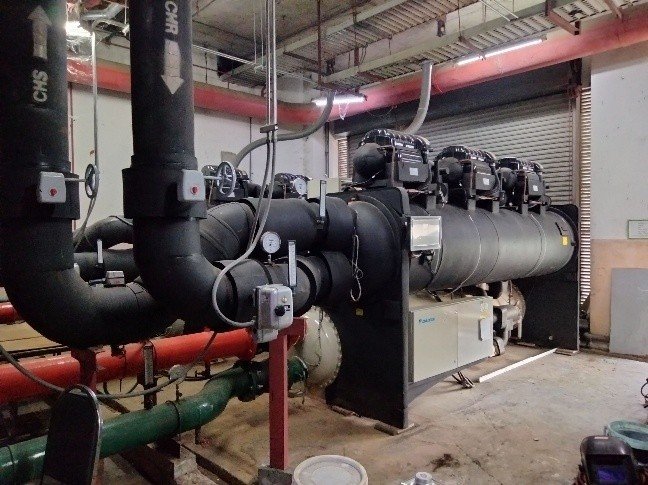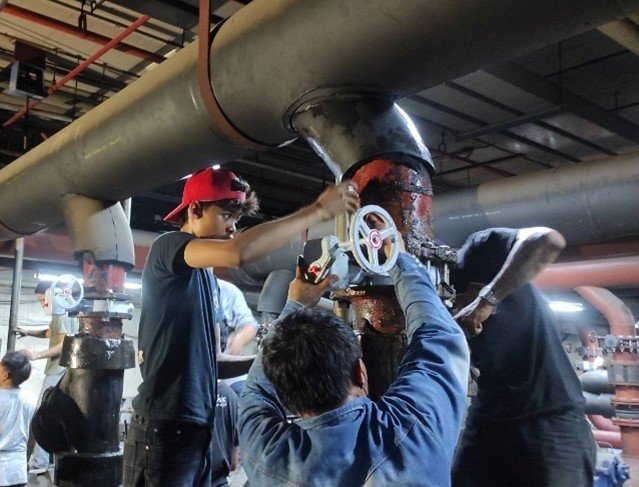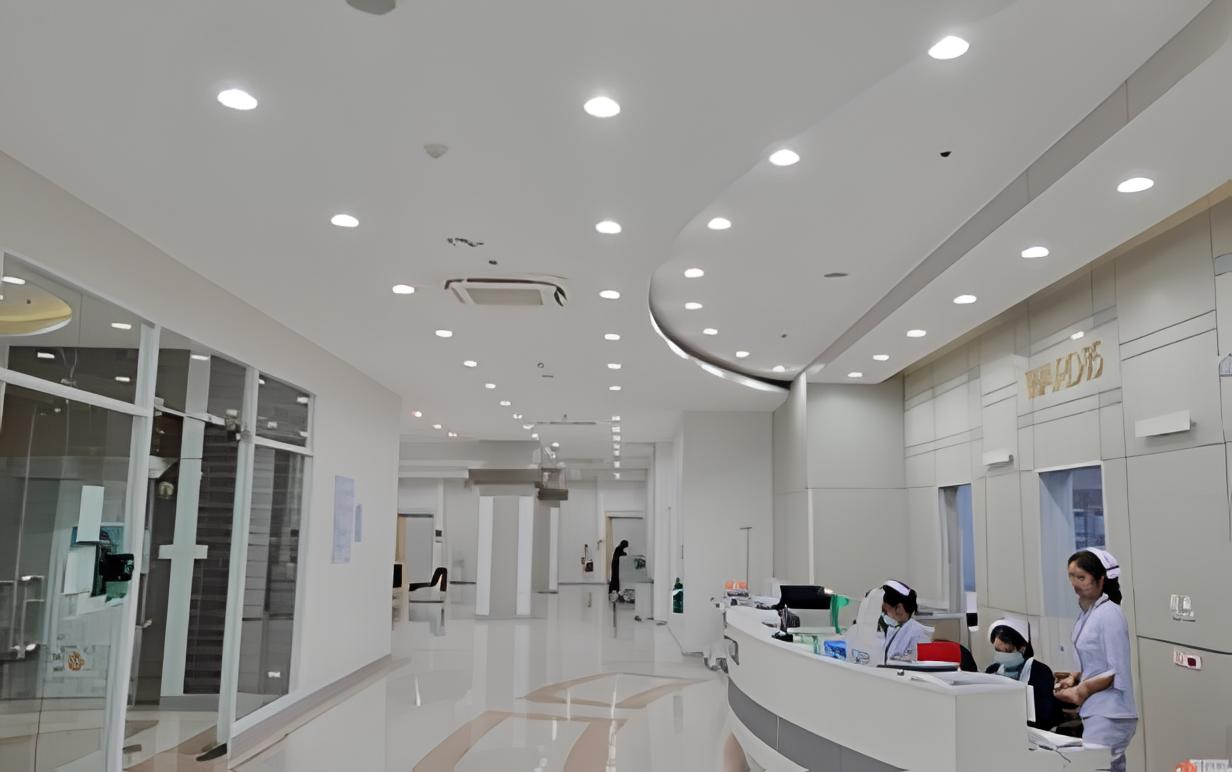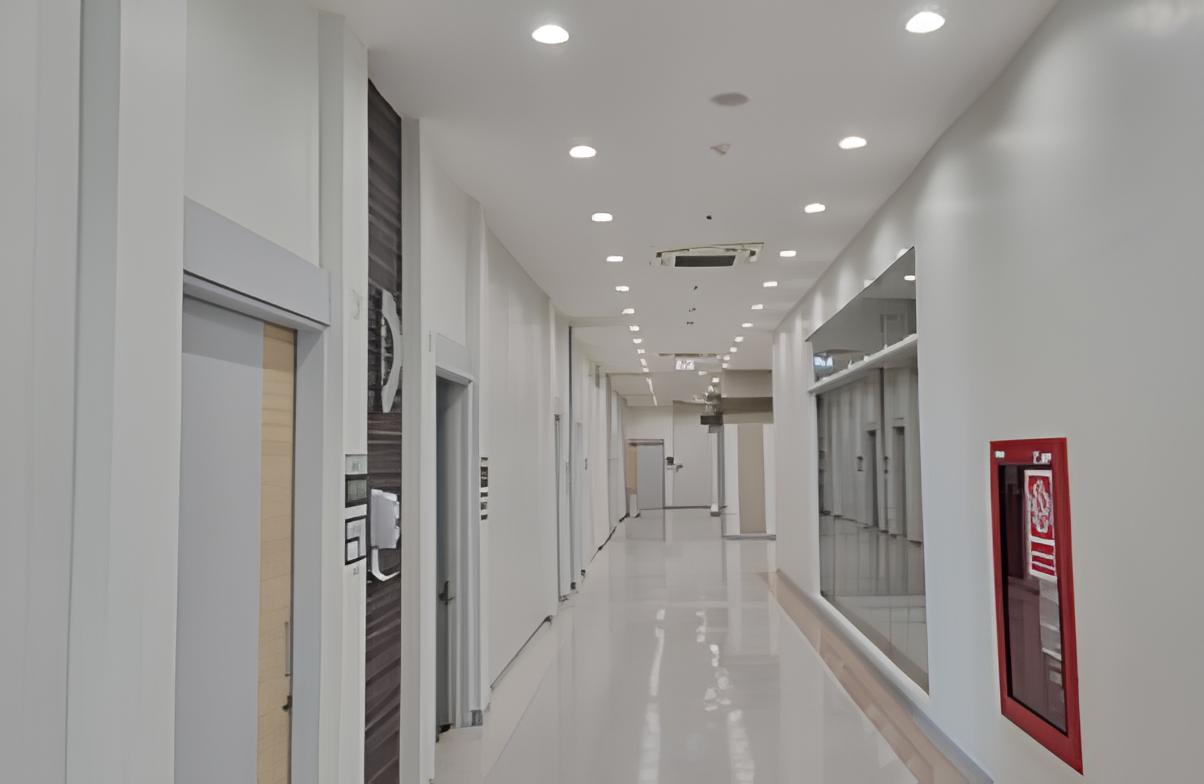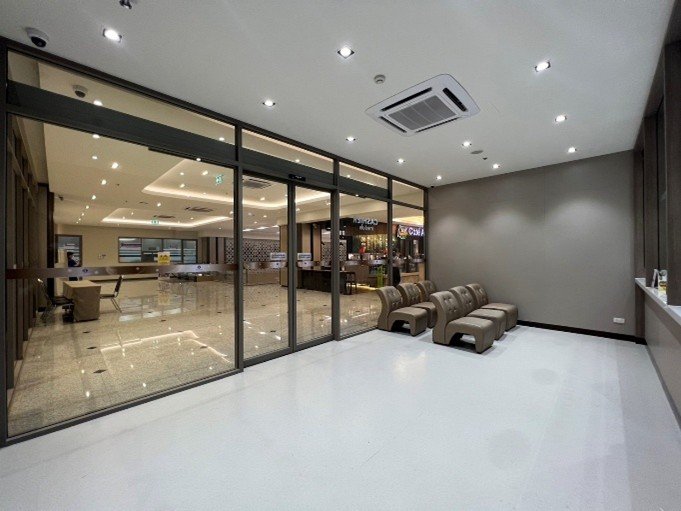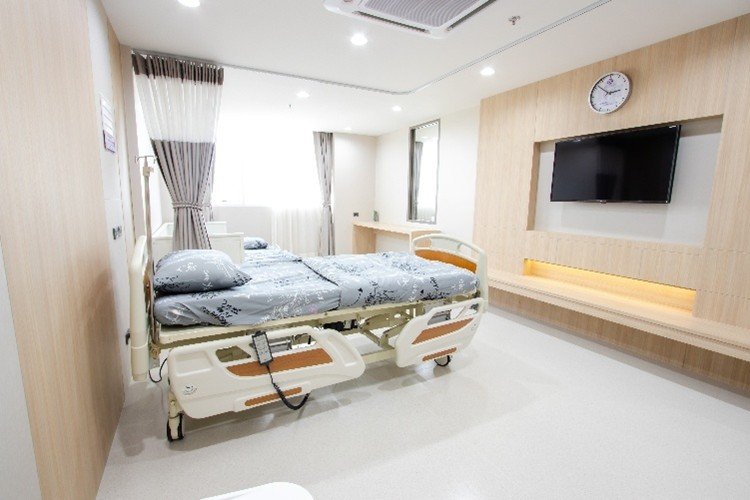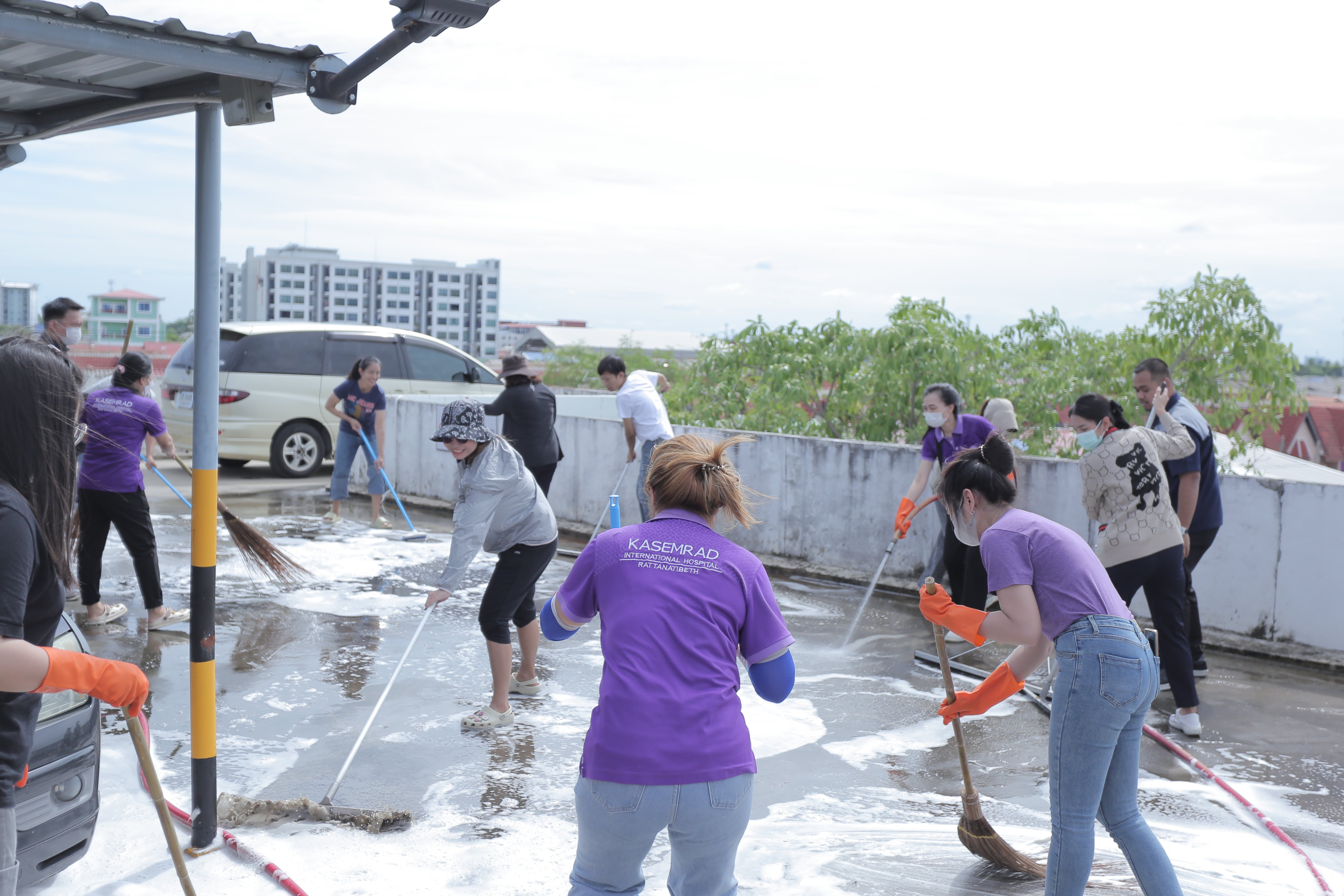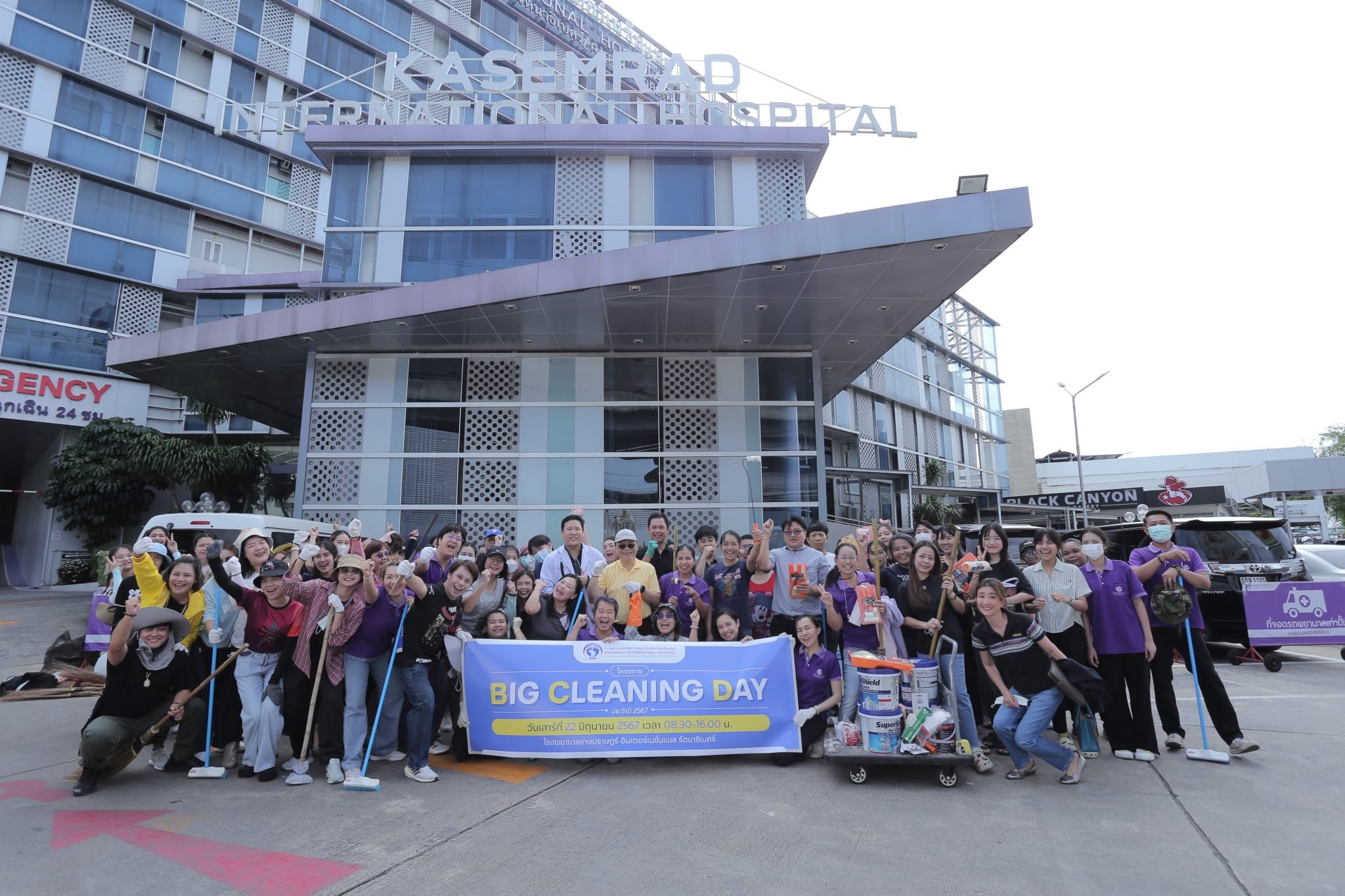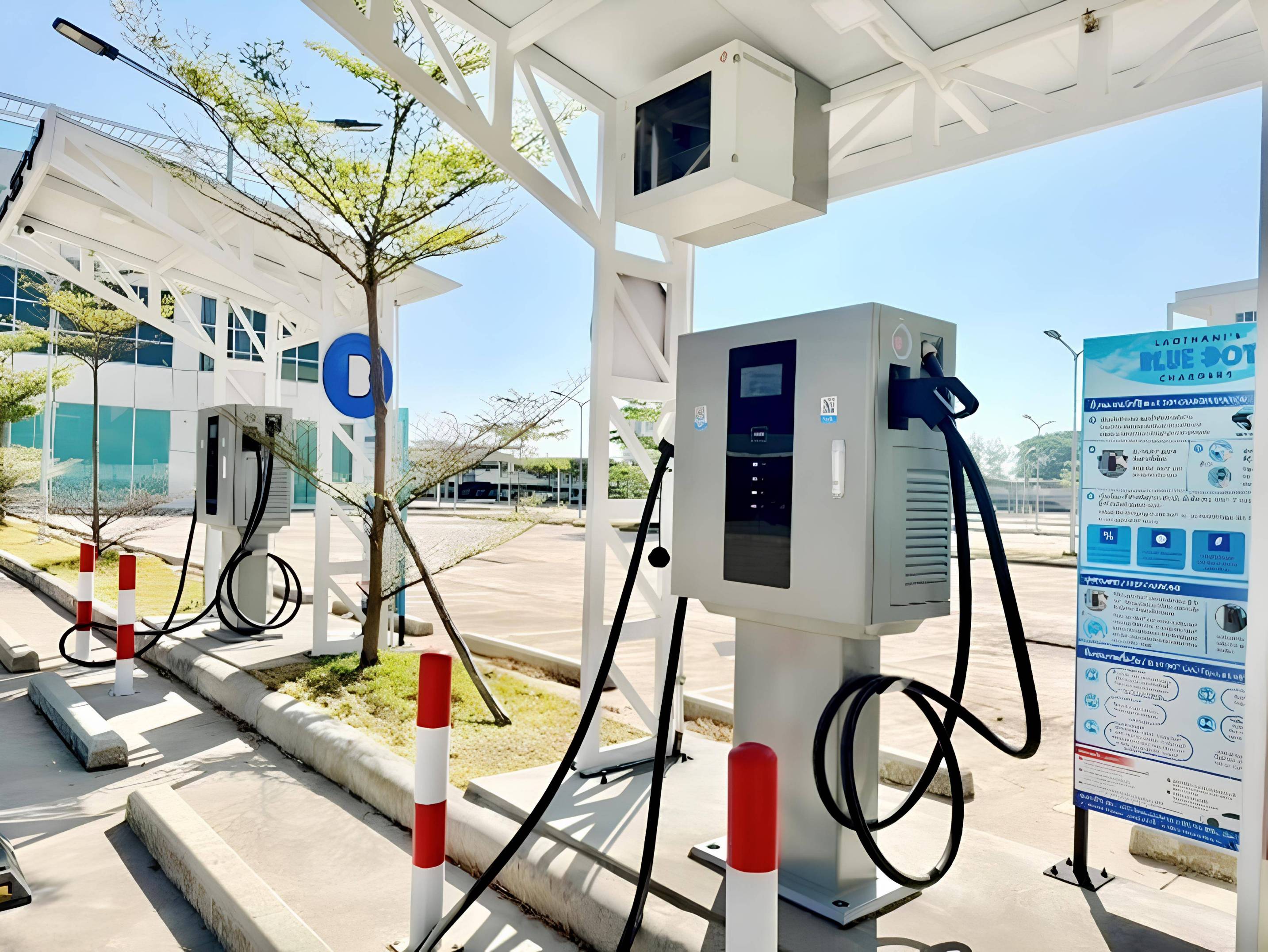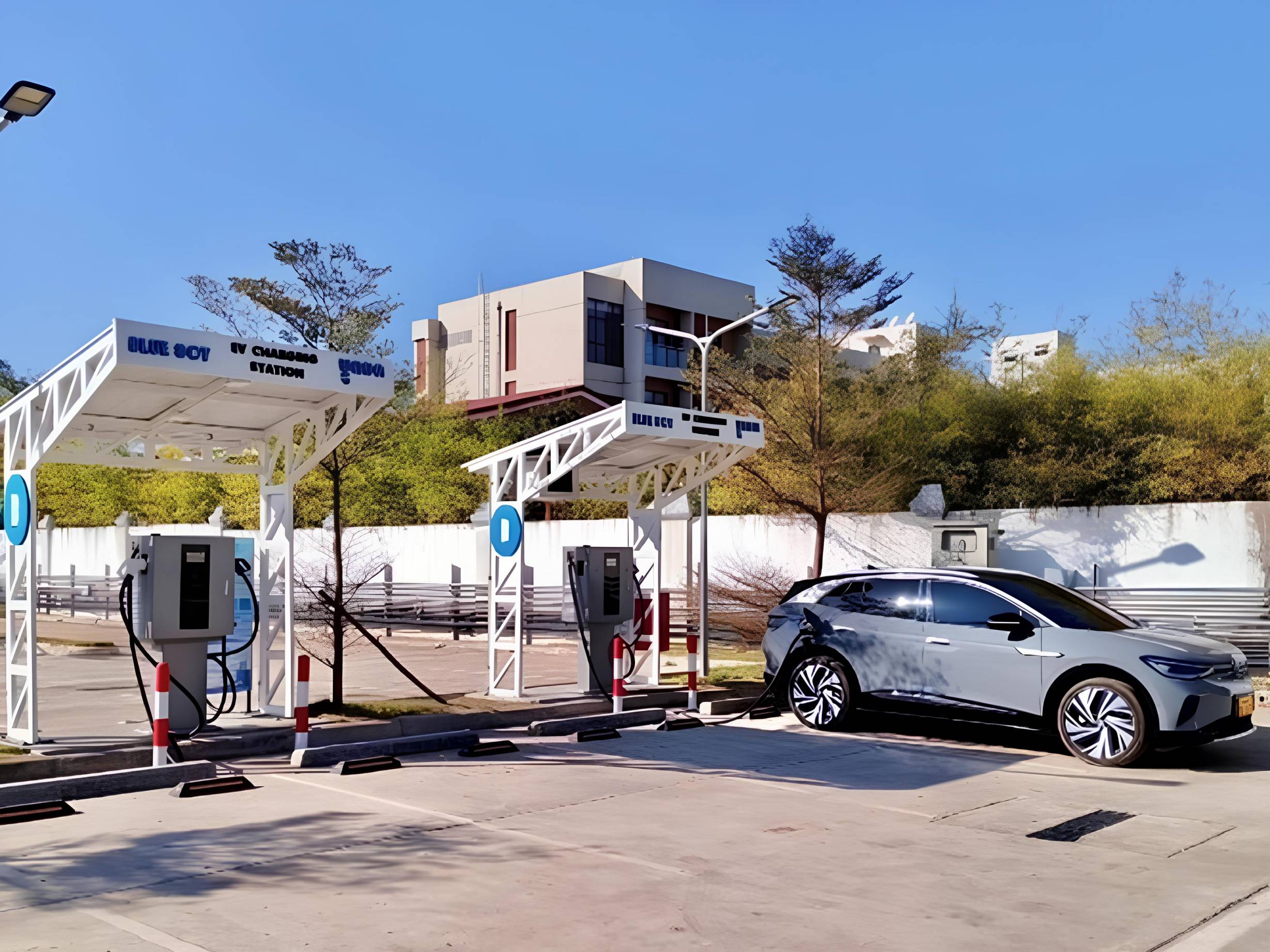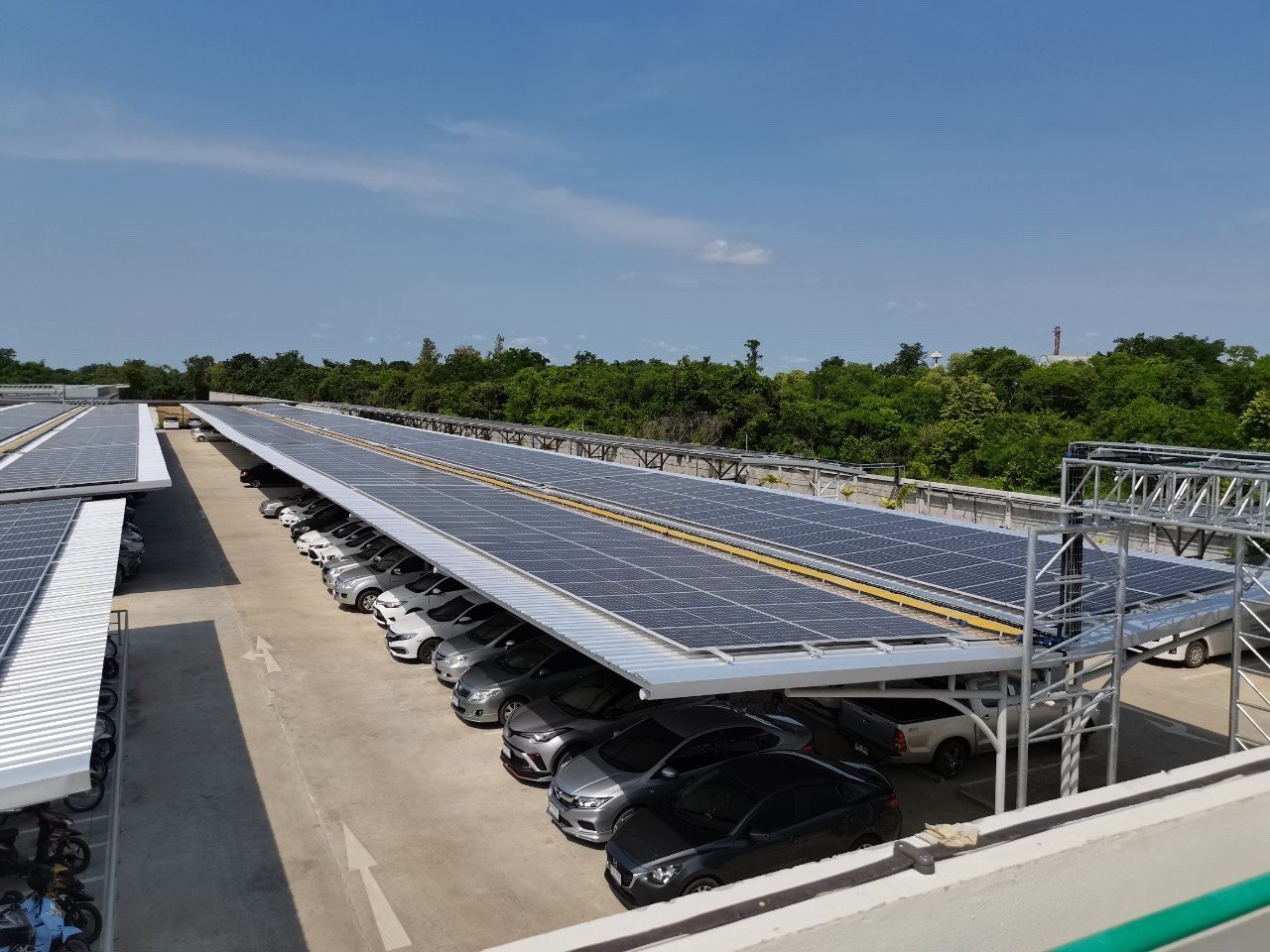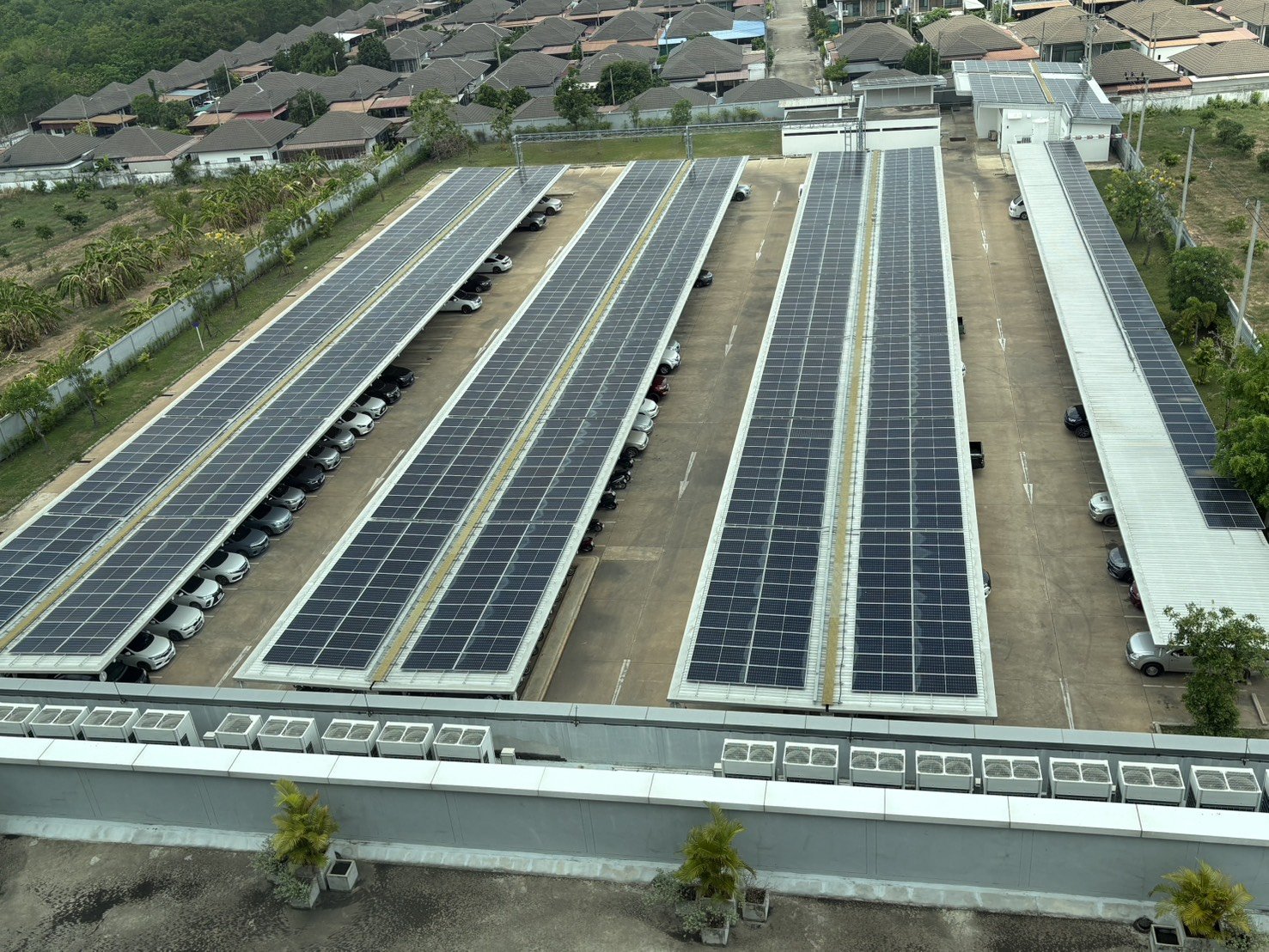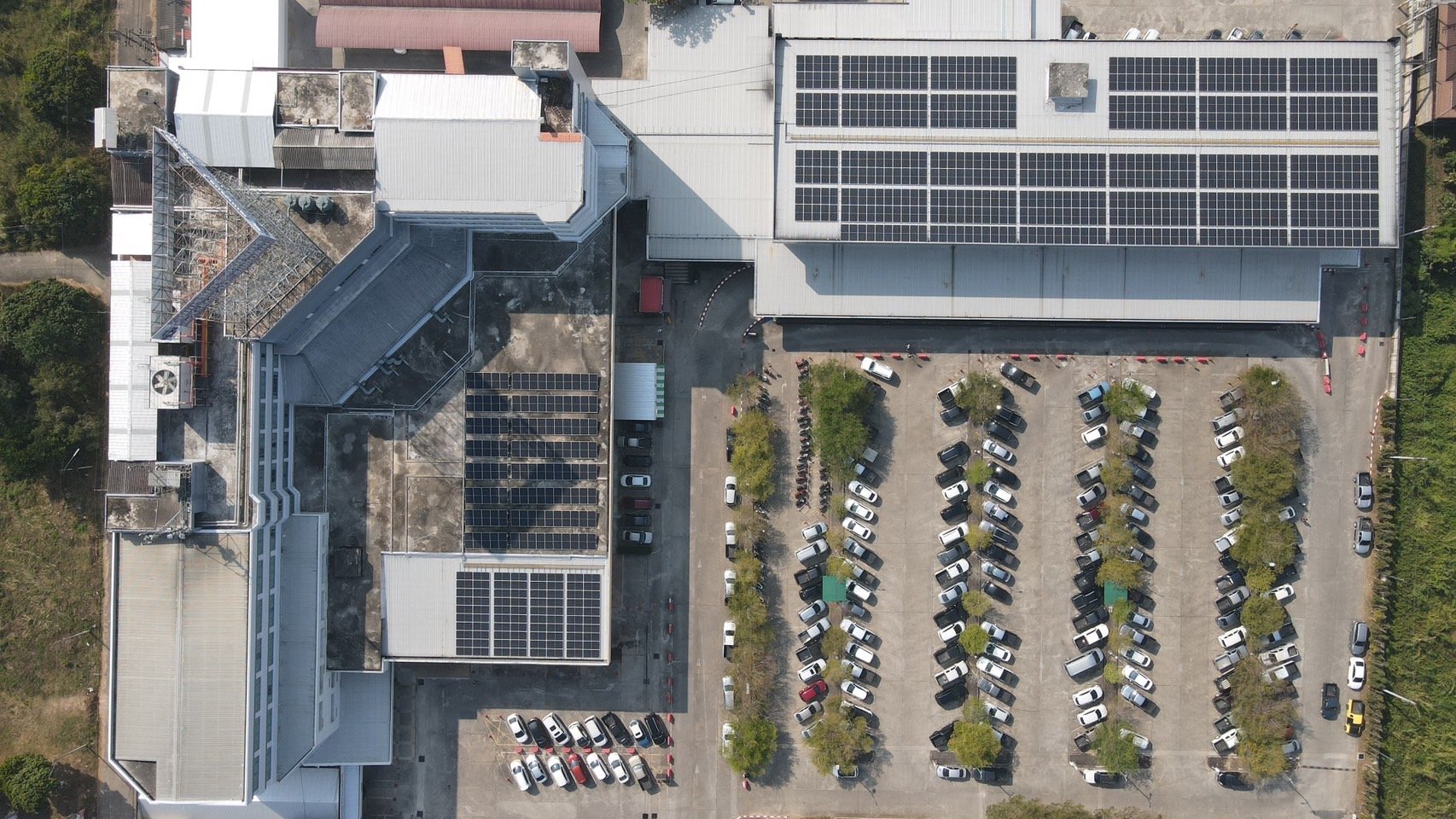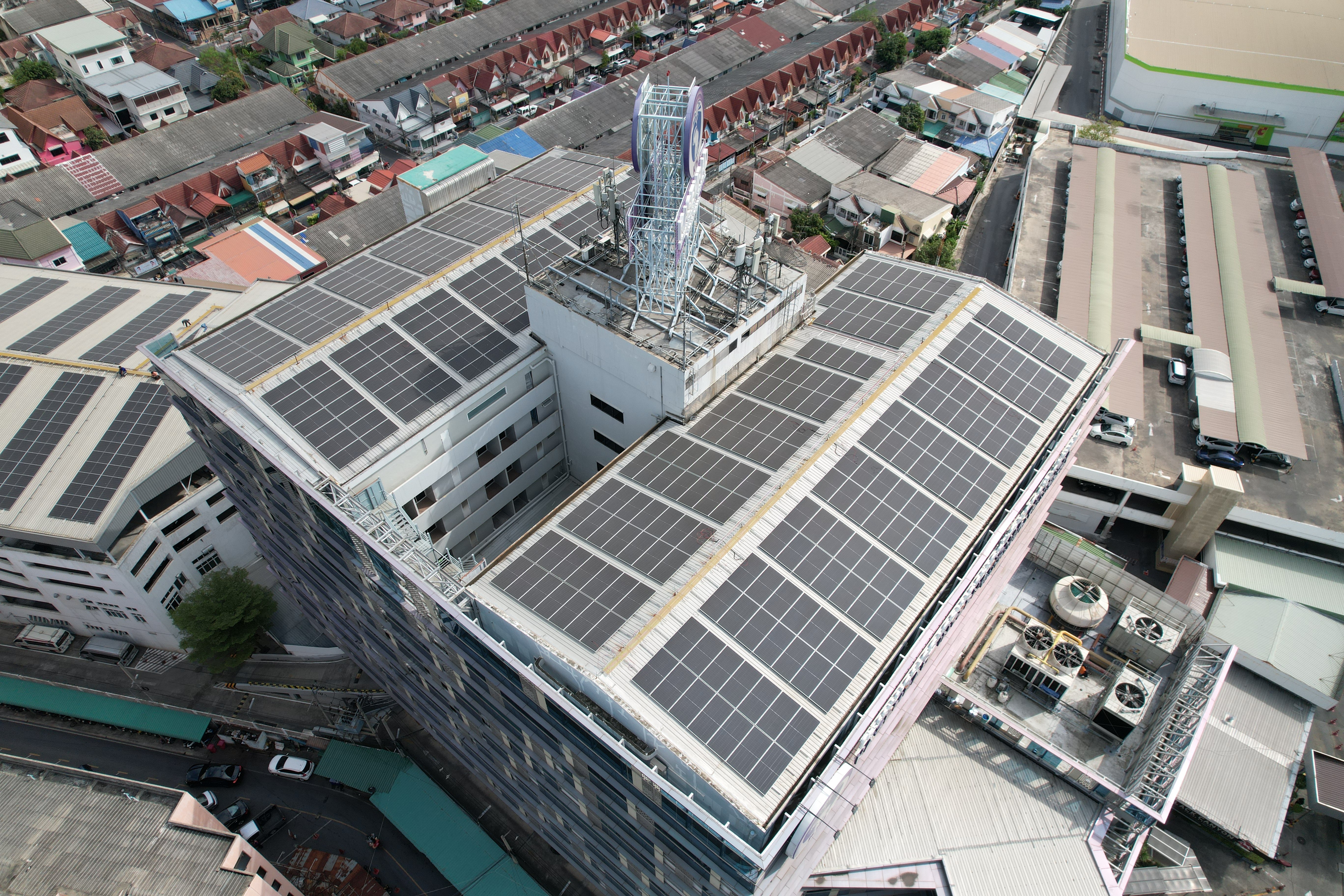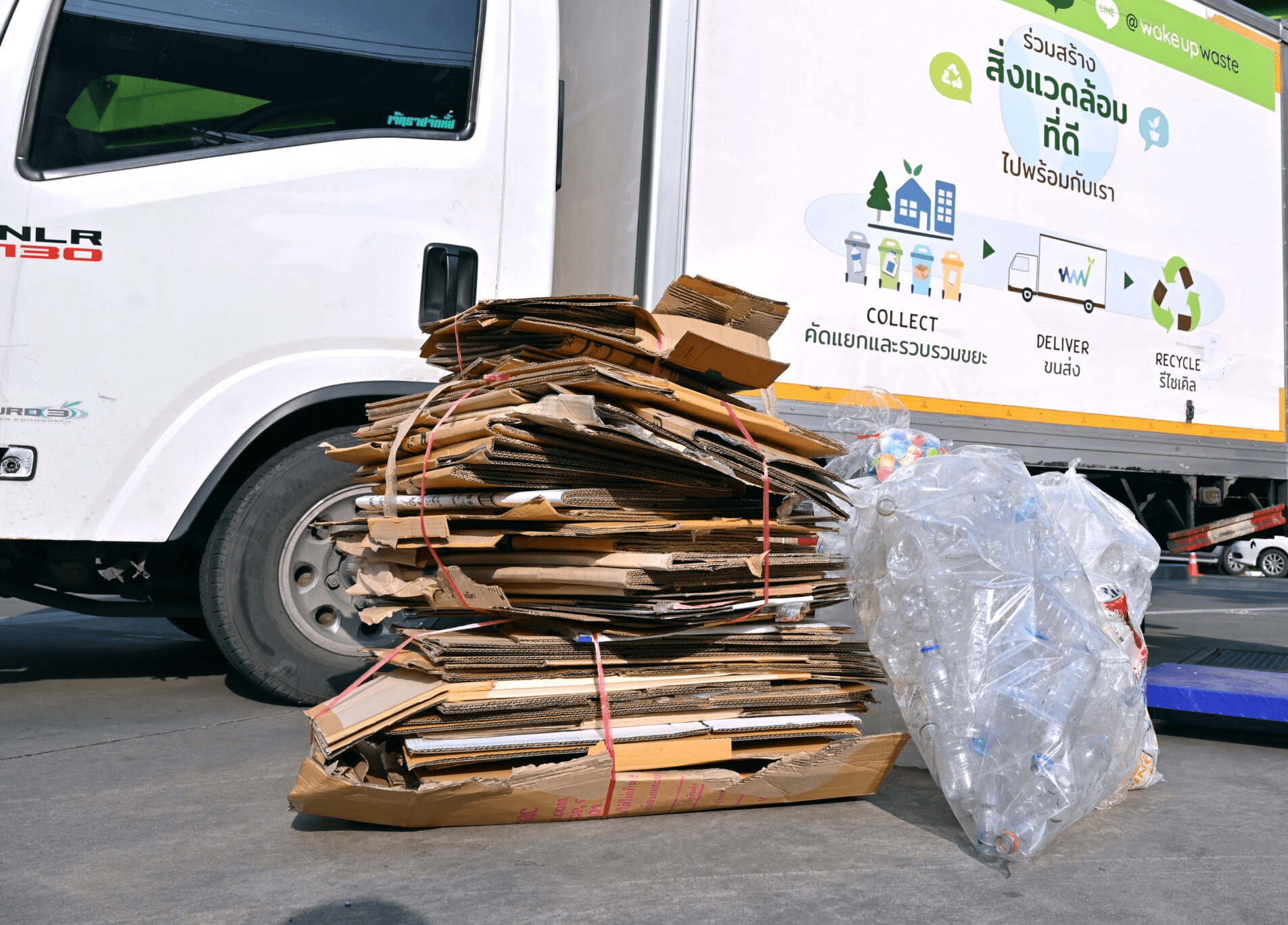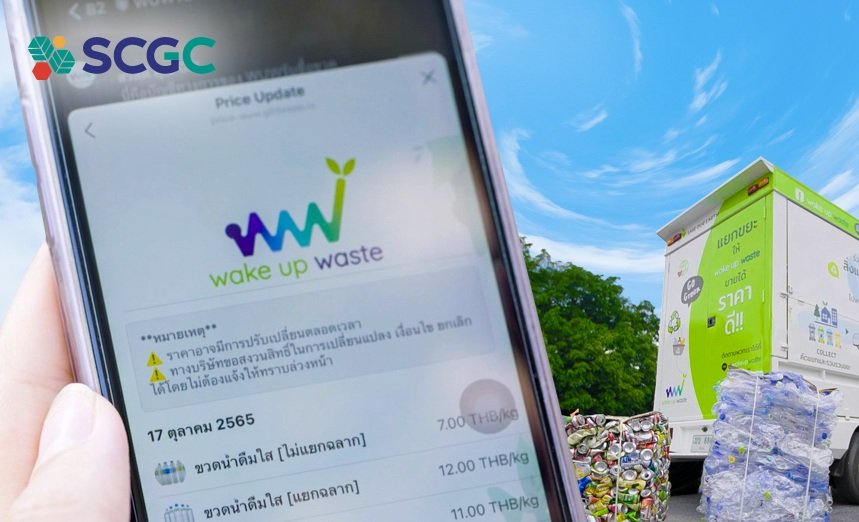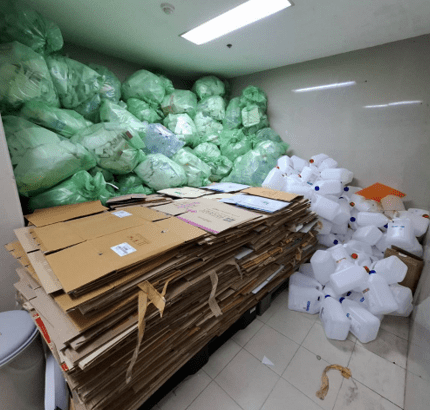Environment
Environmental Sustainability
Climate change and the degradation of natural resources are significant challenges that Thailand is currently facing. These issues have led to an increase in the global average temperature, more frequent natural disasters, and water shortages in many areas, affecting the quality of life of the population and economic stability. The Company recognizes these challenges and places serious importance on environmental conservation by establishing environmental policies and systematic resource management. This includes assessing sustainability issues to incorporate them into strategic planning, risk management, and minimizing the impacts of the organization’s operations.
Environmental Sustainability Management Goals
Environmental Dimension
Goals
- The Company has a target to reduce greenhouse gas emissions per total revenue by 0.3% by 2027 compared to the 2024 baseline.
- The Company aims to reduce electricity consumption per total revenue across all hospitals by 0.3% by 2027 compared to the 2024 baseline.
Environmental Dimension
Goals
The Company has a target to reduce water usage per total revenue by 0.3% by 2027 compared to the 2024 baseline.
Environmental Dimension
Goals
The Company has a goal to reduce waste per total revenue by 5% by 2027 compared to the 2024 baseline.
Environmental Management Approach
BCH operates with a strong commitment to environmental responsibility, grounded in the belief that minimizing both direct and indirect environmental impacts will benefit both business and society in the long term. As such, an environmental management policy has been established to serve as a framework that encompasses employees, business partners, contractors, and all stakeholders. This policy aims to foster operations that are environmentally and community-conscious in an effective and responsible manner.
To ensure systematic and auditable implementation, the Company has appointed an Environment of Care Committee (ECC), which is responsible for analyzing, assessing, and monitoring environmental issues that may affect personnel, service recipients, and surrounding communities. The committee also oversees risk management planning related to hospital activities, with the goal of achieving a balance between business operations and long-term environmental sustainability.
Energy Management and Climate Change
BCH recognizes the increasing severity of climate change driven by greenhouse gas emissions, which affect not only the environment but are also closely linked to human health, society, and business operations. To address this challenge, the Company places strong priority on reducing and preventing such impacts through initiatives that improve energy efficiency, expand the use of clean and renewable energy, and promote technology and innovation for energy conservation and emissions reduction. As hospital operations require substantial electricity, BCH regards energy management as a core component of its sustainability strategy. To enhance this effort, BCH has implemented an Internal Carbon Pricing (ICP) mechanism to promote awareness of the financial impact of greenhouse gas emissions and guide investment decisions projects. The Company also discloses a reference carbon price aligned with Thailand’s planned carbon tax rate of 200 THB per ton of CO₂e, to be introduced by the Excise Department in 2025.
In 2024,
Furthermore, BCH is committed to conducting its business in alignment with Thailand’s national climate policies as announced at COP26 and demonstrates compliance with the Energy Conservation Promotion Act B.E. 2535. The Company has adopted the ISO 50001 Energy Management System and prepares greenhouse gas inventories, reinforcing its alignment with public policy on energy conservation and climate change mitigation. Furthermore, BCH has joined the Thailand Carbon Neutral Network (TCNN) under the Thailand Greenhouse Gas Management Organization (TGO), which serves as a collaborative platform for advancing sustainable healthcare and climate-related initiatives.
Greenhouse Gas Emissions 2024
23,843.60
tons CO2eq
In 2024, the Company had
- Greenhouse gas emissions totaling 23,843.60 tons CO2eq
- Emissions intensity of 2.02 tons CO2eq per million baht of revenue.
GHG Emissions Intensity
Energy Management and Climate Change Initiatives
The core operations of our business heavily depend on electricity as the primary source of energy. Recognizing this, BCH is committed to optimizing energy consumption and improving efficiency to minimize environmental impact. BCH has established a clear energy management framework and continues to implement programs that enhance conservation, including employee training programs, the replacement of inefficient light bulbs with LED technology, the installation of solar rooftop panels, and upgrades to energy-efficient equipment.
1. High-Efficiency Chiller Upgrade Project for Air Conditioning Systems
BCH has upgraded its air conditioning system by replacing the old, high-energy-consuming units with high-efficiency chillers. This change has significantly reduced electricity consumption, improved cooling efficiency, minimized environmental impact, and enhanced long-term operational sustainability. Additionally, it has lowered energy costs and increased comfort for building occupants.
2. LED Lighting Replacement
BCH has replaced traditional lighting with energy-efficient LED lighting, leading to a significant reduction in electricity consumption. LED lights have longer lifespans and require less energy compared to conventional bulbs, which helps decrease carbon dioxide emissions and lower energy costs over time. Furthermore, using high-quality lighting enhances the working environment by providing better illumination and reducing unnecessary energy consumption.
3. Window Film Installation
BCH installed solar control window films on building windows to reduce heat transfer from sunlight entering the building. This helps maintain optimal indoor temperatures, reduces electricity consumption for air conditioning, and improves the efficiency of reflecting solar radiation away from the building.
4. Energy Conservation and Big Cleaning Day
The affiliated hospitals organized the “Big Cleaning Day” campaign, engaging all employees in a collaborative effort to clean various areas of the hospital thoroughly. The initiative focuses on comprehensive cleaning both inside and outside the buildings, including cleaning of air conditioning units and external areas such as parking lots and garden spaces. This project helps improve the hospital’s environmental conditions and reduces the workload of air conditioning systems, enhancing equipment efficiency and contributing to overall energy savings in hospital operations.
5. Installation of EV Charging Stations
BCH’s affiliated hospitals have installed electric vehicle (EV) charging stations on their premises to enhance convenience for customers and encourage the use of environmentally friendly electric vehicles. Electric cars produce no exhaust emissions of greenhouse gases and operate more quietly than internal combustion engines, which helps reduce both air and noise pollution. This initiative helps mitigate environmental impacts and supports energy conservation by reducing reliance on fossil fuel-based energy sources.
6. Solar Rooftop Installation
BCH has installed solar panel systems on the rooftops and parking areas of eight hospitals within the network to promote the use of clean energy and reduce reliance on electricity generated from fossil fuels. In the past year, renewable energy purchases amounted to 2,658,022.1 kilowatt-hours, representing 4.68% of total electricity consumption. This reflects the Company’s commitment to increasing the share of renewable energy and sustainably minimizing environmental impacts.
7. "Care the Bear" Project
BCH has participated in the “Care the Bear” project initiated by the Stock Exchange of Thailand, demonstrating its commitment to addressing climate change and promoting sustainable business practices. Through this initiative, BCH aims to reduce greenhouse gas emissions from various corporate activities, such as shareholder meetings, events, online meetings (e-AGMs), Company outings, award ceremonies, and CSR initiatives. These efforts are intended to minimize environmental impacts through actions that lower carbon dioxide emissions. As a result of its participation in this program, BCH successfully reduced its carbon dioxide equivalent (CO2e) emissions by 2,392.54 kilograms. This reflects BCH’s dedication to driving positive climate action and fostering responsible and sustainable business operations.

Water and Wastewater Management
BCH recognizes the growing impacts of climate change, including droughts, floods, and water scarcity, which may affect healthcare operations. The Company prioritizes adaptation measures by developing a water management to address flood and drought risks, implementing programs to reduce water consumption and conserve resources, and enhancing health and safety preparedness for staff and patients through training on disaster response.
BCH has developed a water risk assessment framework for its hospitals and affiliated clinics using the internationally recognized Aqueduct Water Risk Atlas developed by the World Resources Institute (WRI). The assessment categorizes water risks into three levels to identify high-risk areas and support effective water management planning. This initiative aims to address future uncertainties related to water resources and enhance long-term sustainability for both the hospitals and surrounding communities.
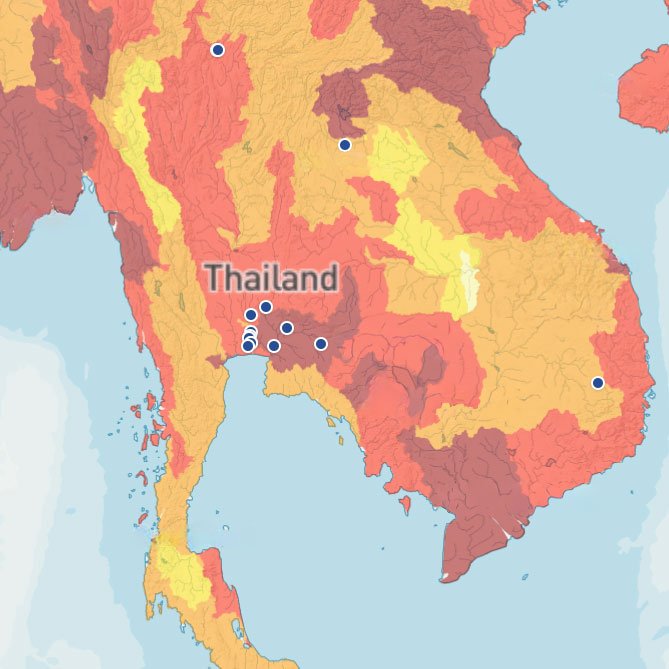
Water Risk Assessment Level
According to the water risk assessment, 20% of the facilities are located in areas classified as “extremely high” risk, 26.7% in “high” risk areas, and 53.3% in “medium to high” risk areas. The Company, therefore, evaluates water resource risks by considering both the level of regional water stress and the volume of water consumption at each facility. This supports the development of appropriate water management plans and measures, along with continuous monitoring, to strengthen long-term water security.
Waste water Management in BCH Affiliate Hospitals
1. Water Reduction
BCH recognizes that water is an essential resource for hospital operations and patient care. To reduce water consumption, the Company has implemented measures whereby the Facility and Building Department conducts regular maintenance of the water systems throughout the hospital to prevent damage and leakage, with monthly inspections carried out. Additionally, water-saving awareness campaigns are promoted among employees through internal communication materials, alongside the replacement and installation of automatic faucets for external users.
2. Water reuse
BCH has implemented a water conservation initiative by reusing wastewater. The wastewater is treated using a Reverse Osmosis (RO) filtration system to ensure it is safe and free from harmful pathogens before being reused in non-potable applications that do not affect service users. These include toilet flushing, floor cleaning, and landscape irrigation.
Waste Management
BCH prioritizes effective waste management, particularly in the healthcare service sector, where the use of disposable materials is substantial. Waste management operations are carried out based on the 3Rs principles: Reduce, Reuse, and Recycle to help minimize environmental impact and reduce adverse effects on surrounding communities.
To ensure that waste management complies with environmental laws and standards, the Company has established the Environment of Care Committee, working in collaboration with the Infection Control Committee. This joint committee oversees the entire waste management process from waste segregation and storage to the disposal of all types of waste. It also provides training to staff and external contractors working within hospital premises to ensure proper control and management of waste generated from hospital services. This approach ensures that all waste types are handled appropriately and in compliance with relevant regulations.
Waste volume
Waste Management in BCH Affiliate Hospitals
BCH has collaborated with SCGC in the “Wake Up Waste” project to promote the circular economy concept through waste segregation and maximizing material reuse. The project focuses particularly on recycling plastic waste into new products that can be reused. Kasemrad Prachachuen Hospital and Kasemrad Ramkhamhaeng Hospital serve as pilot sites for this initiative, which has achieved a reduction of greenhouse gas emissions by 1,106.44 kilograms of CO2 equivalent, equivalent to the carbon absorption of 91 mature trees.
